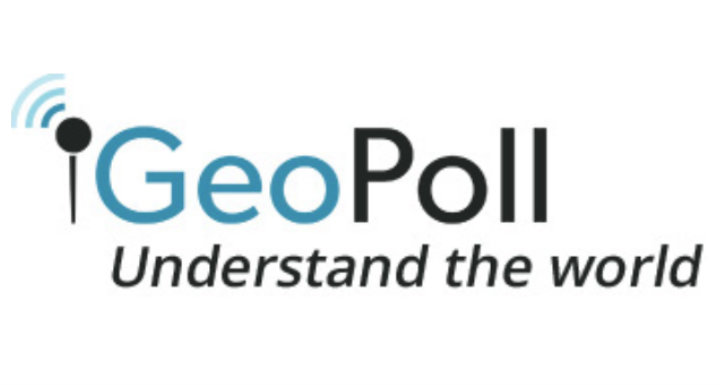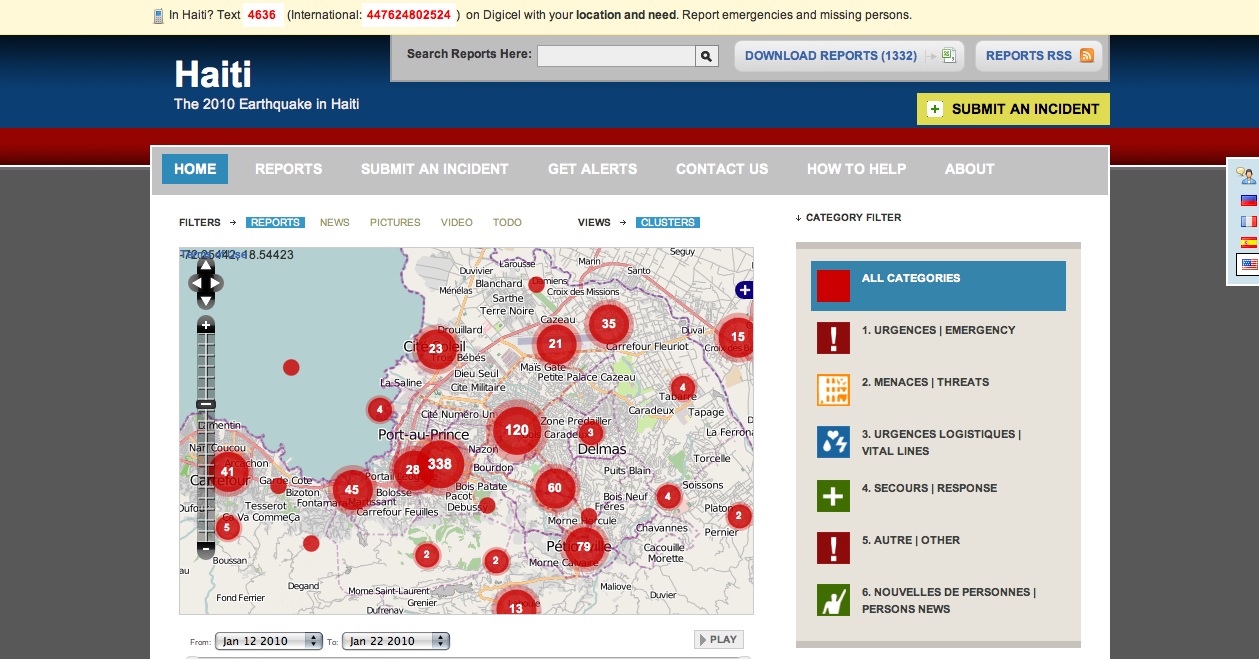For my final project for TC105: Mobiles for International Development, I decided to interview Amy Sweeney of GeoPoll, one of the guest speakers of our class. Working on global development issues, I am deeply interested in new opportunities offered by technology, particularly how it allows people living even in the poorest countries to share information through mobile devices. GeoPoll strikes me as one of the most innovative players in this field and for this reason I decided to go back to Amy and ask her to describe GeoPoll’s work in more detail.
Since the interview I have also been amazed to learn that some of my colleagues at the organisation I work for, the OECD, already collaborate with GeoPoll on a ‘data revolution’ project that will contribute to more accessible information on development in the next few years… one more proof that there are no coincidences in life. I am now in touch with them on a regular basis to see how the project will evolve.
Interview with Amy Sweeney, Director of Business Development, GeoPoll
GeoPoll is a mobile survey platform that allows you to carry out mobile surveys in any country in the world except North Korea. Technically GeoPoll is registered as a US small business but it sees itself more as a social enterprise. It is eligible for both grants and contracts by US and international funders alike.
GeoPoll Overview
1. How would you define your added value compared to your competitors? What is your unique approach to mobile surveys?
GeoPoll’s approach is to reach as many people as possible regardless of their income or status. While many mobile surveys require the use of the Internet or web-based applications, we offer the opportunity to take a survey just by using any mobile phone (e.g., feature phones all the way up to smart phones). We aim to reach a greater portion of the ‘bottom billion’ people through simple text or voice messaging. There are other players in our market, particularly local companies, but we are different in that we establish partnerships with mobile network operators. We serve as a platform but also serve as a “sample source”. We have access to more than 150+ million mobile subscribers in Africa alone. We can achieve more reach, scale, and connections with these operators than anyone else.
GeoPoll – How Our Platform Works
2. Who are your primary clients? Do you foresee any major change in their composition?
Roughly half of our business is with the social sector, e.g. international organisations like WFP and USAID, NGOs, etc. The remaining half is with commercial companies and market research groups but this percentage is likely to increase this year due to recent media measurement products produced.
3. Are you planning to collaborate again with the World Bank and the UNDP My World Survey?
The collaboration with the World Bank in 2010 was for the World Development Report focused on community-based consultations on gender-based violence in DR Congo. World Bank’s annual World Development Reports cover a different topic and a different country every year. At the moment there are no plans to collaborate again on a World Development Report in the near future but we are exploring other opportunities with the World Bank. The same goes for the My World Survey.
4. How do you ensure free participation or even incentives for survey takers? And who covers these costs?
GeoPoll connects with mobile network operators’ billing systems allowing mobile subscribers to participate in mobile surveys at no cost (e.g.:. zero-rated or free to respond to). For example, those that do not have airtime credit on their phones can still participate. Each carrier is different but ultimately our agreement with them ensures that the survey comes at no cost to the survey taker, which reduces the economic barrier for participation.
5. Is there such a thing as an average response rate? Does it vary across regions, gender or any other big factor?
Responses to our surveys really depend on the country and the topic in question. We have noticed that the response rate increases over time as survey takers get to know GeoPoll as a reliable service. Once trust has been built people feel more comfortable taking the survey. Also, we have done some testing that shows that response rates tend to increase with incentives. Another approach we have taken which has been widely successful is running panel-based surveys, including measuring TV viewership and radio listenership ratings, in several African countries. In that case, response rates have been astronomically high because users are engaged on a daily basis.
I hope you will find this interview useful. I’m excited to see that Amy Sweeney is coming back as a guest speaker for TechChange’s upcoming Mobiles for International Development course! Also, feel free to connect with me via Twitter (@faridabena) to continue our discussion on mobiles for development.
Interested in mobile data and other ways mobile phones bring understanding to the world? Join our upcoming online course on Mobiles for International Development.
About Amy Sweeney
Amy Sweeney is the director of business development for GeoPoll based in Washington, DC. Prior to joining GeoPoll, Ms. Sweeney spent nearly five years developing and honing her international development experience at Chemonics, where she held the position as new business director in Caucasus and Central Asia RBU. She previously served in the Peace Corps in Uzbekistan and worked in Afghanistan and Turkey. She holds a bachelor’s degree in journalism and mass communications from the University of Wisconsin-Madison.
About Farida Bena
Farida Bena is the Economist / Policy Analyst at Organisation for Economic Co-operation and Development (OECD) based in Paris, France. She has more than 15 years of experience working in development, humanitarian aid, and global advocacy across four continents. Before joining OECD, Ms. Bena has worked as the director at the International Rescue Committee Belgium and led the Aid Effectiveness Policy team at Oxfam International. Ms. Bena holds a master’s degree in International Relations from Yale University.





